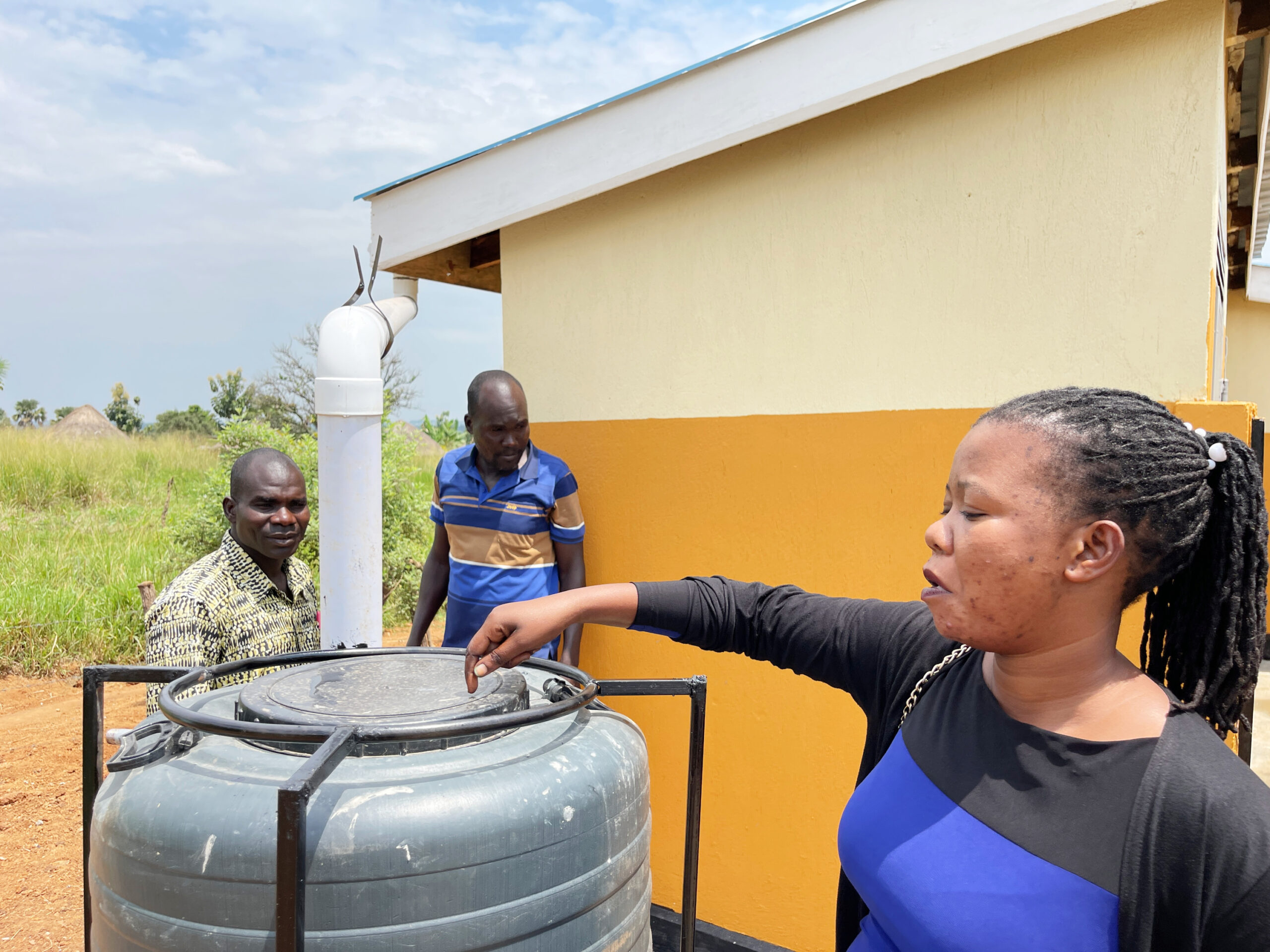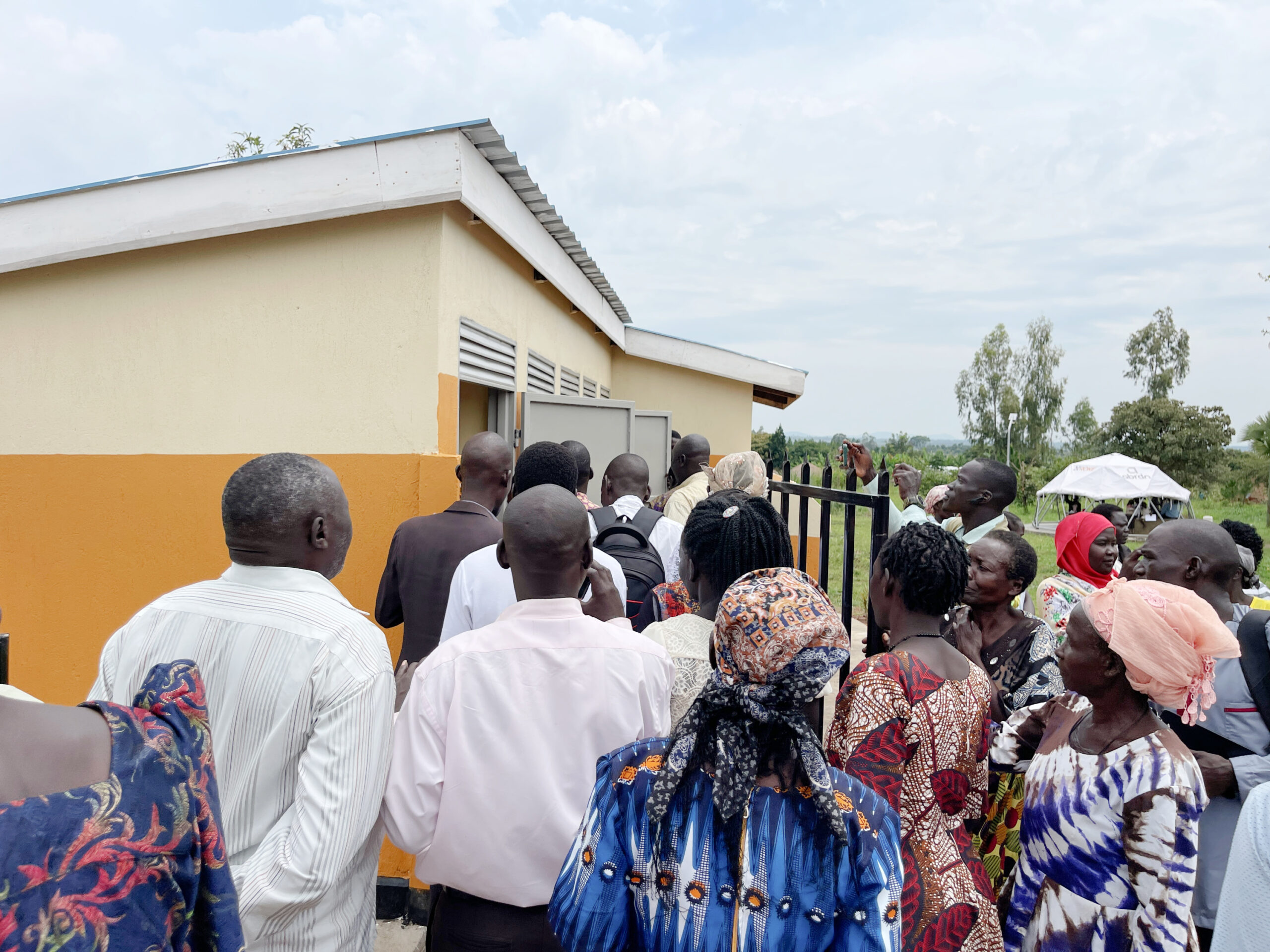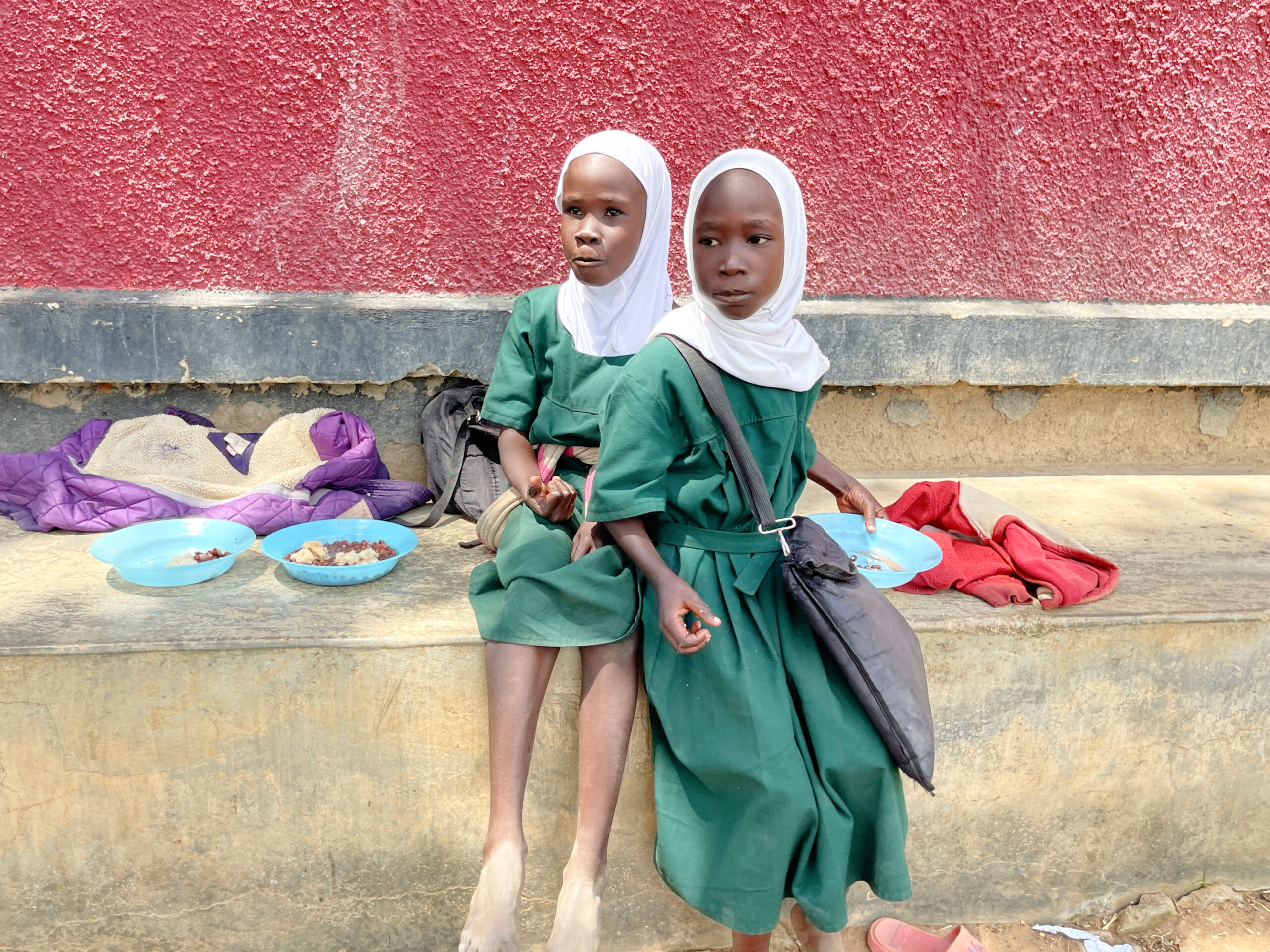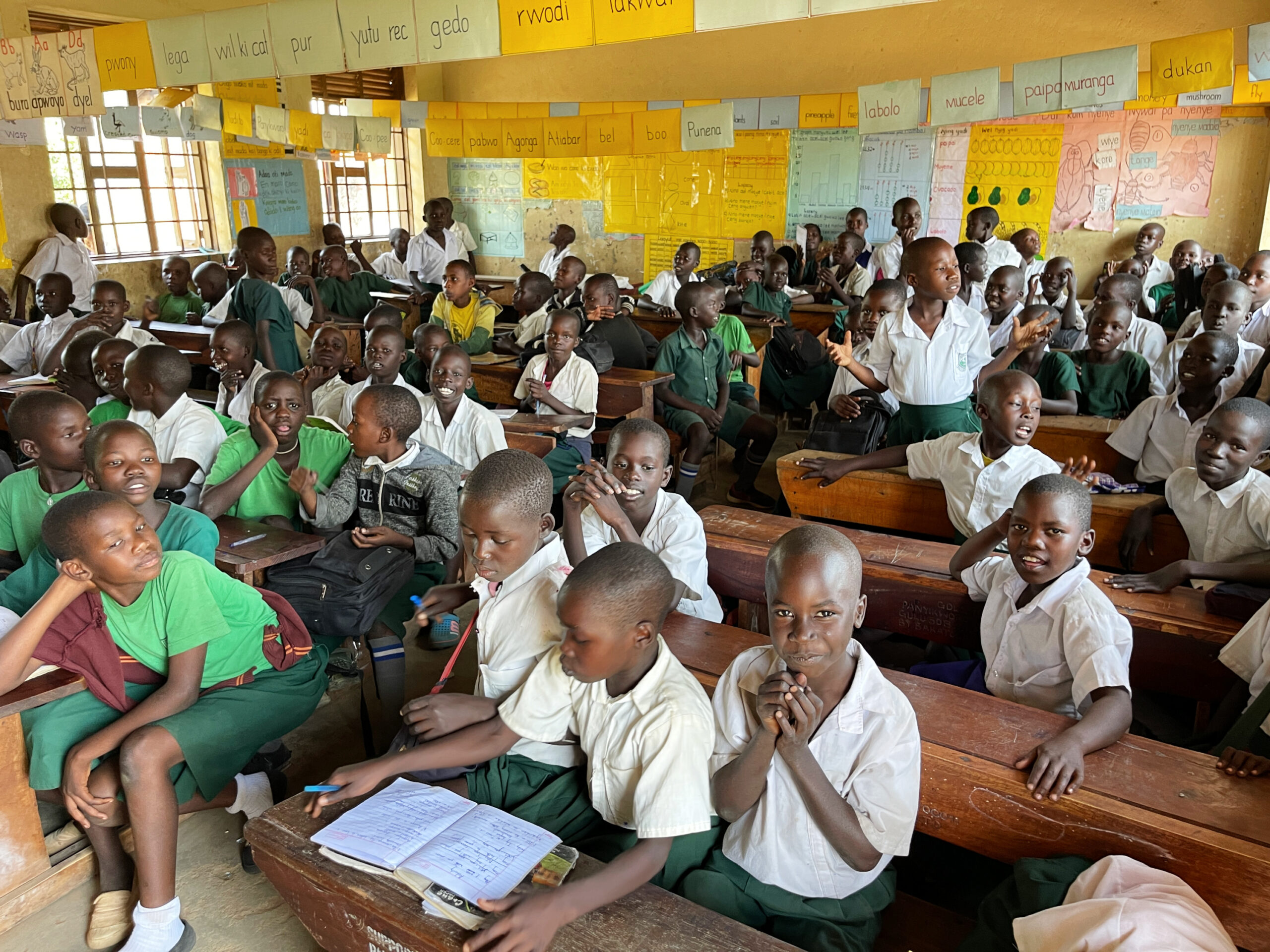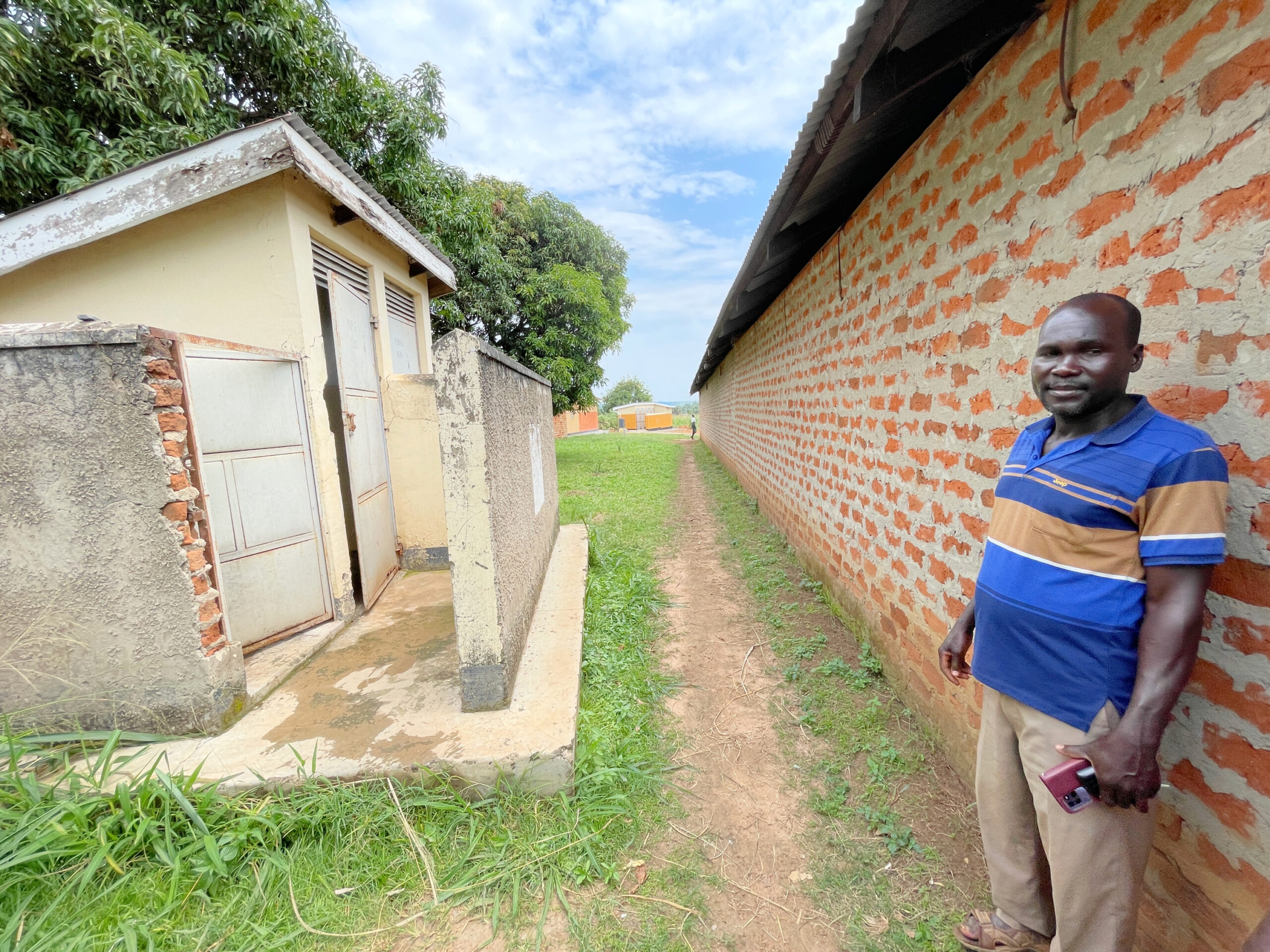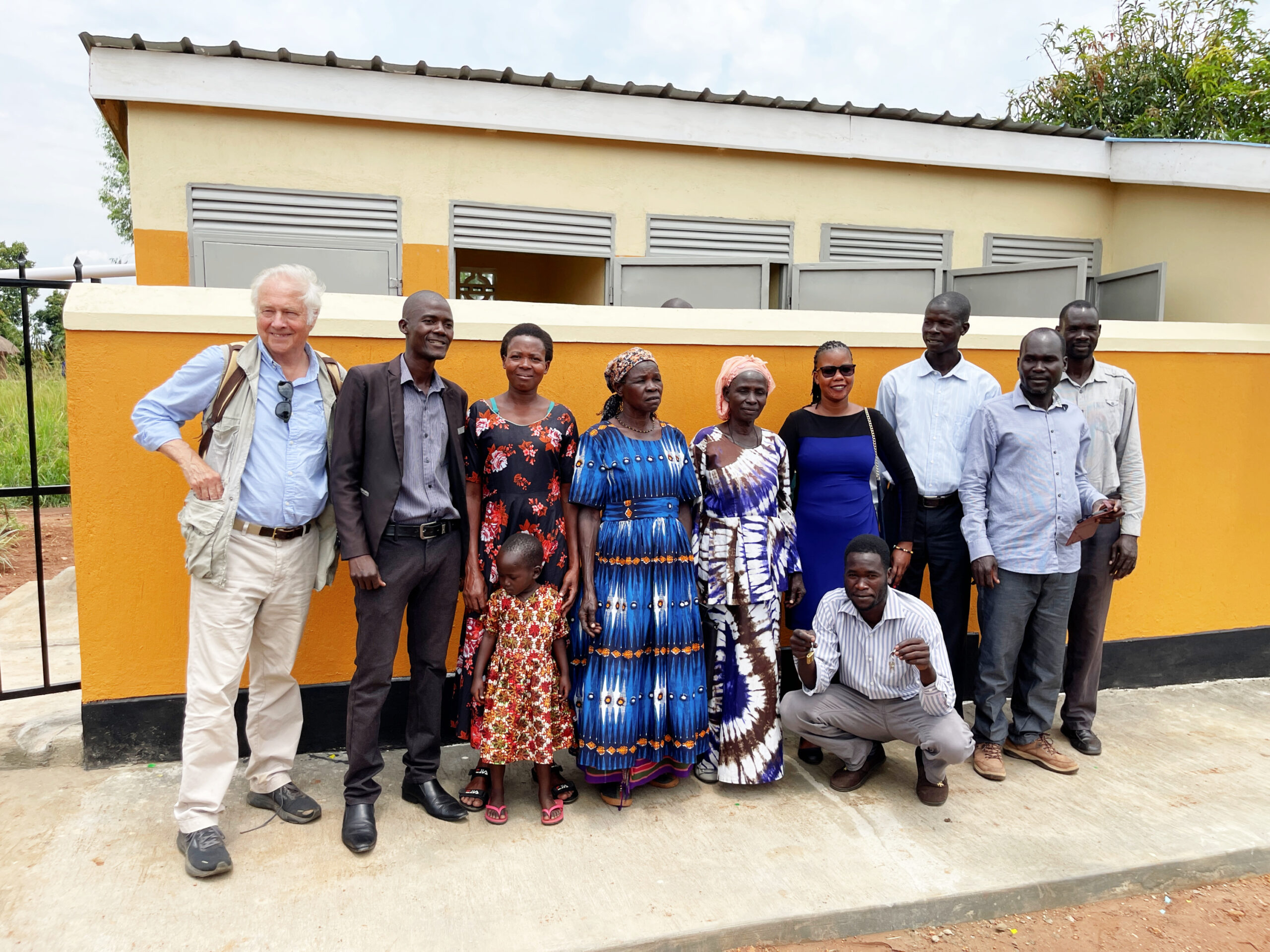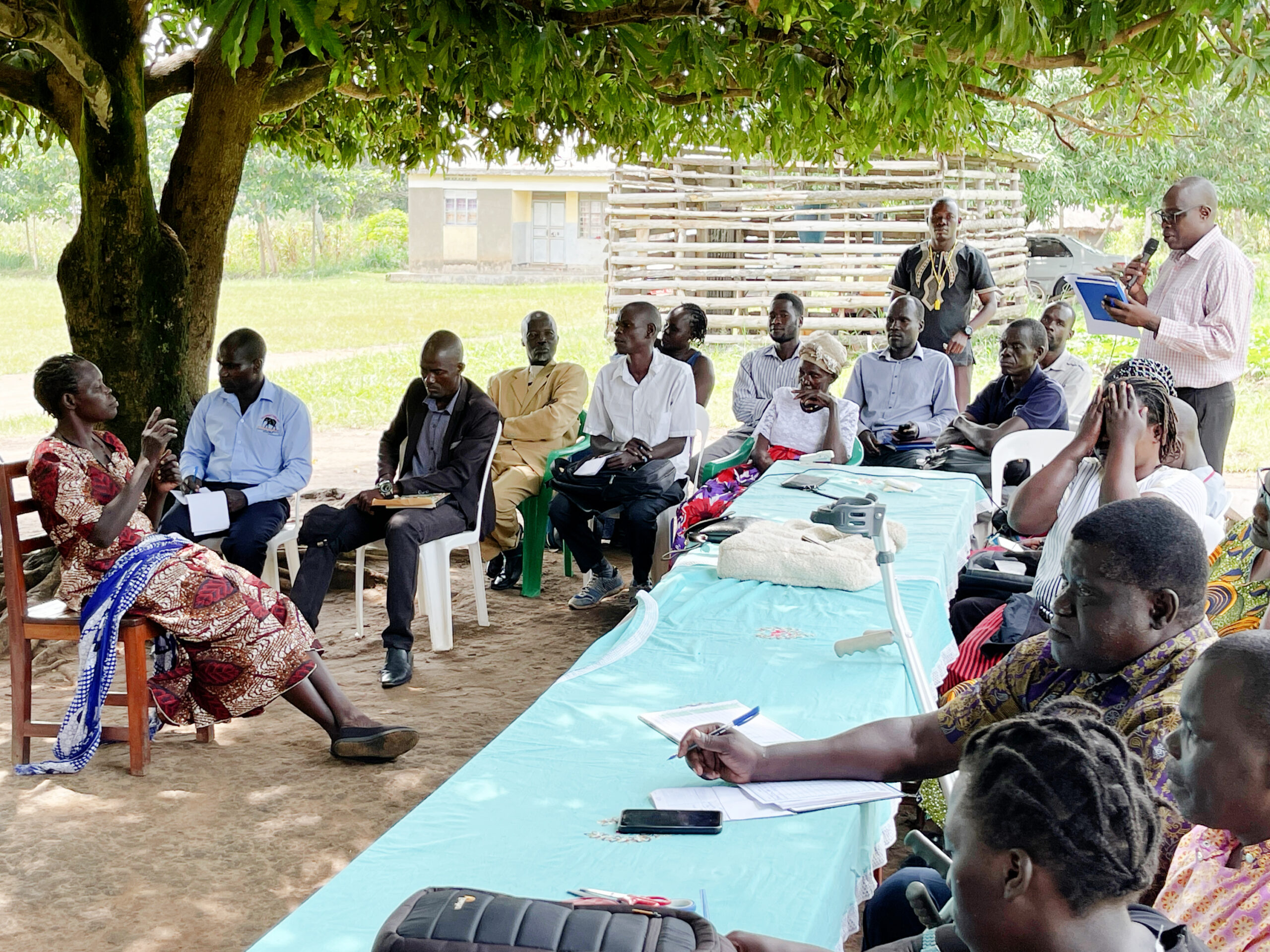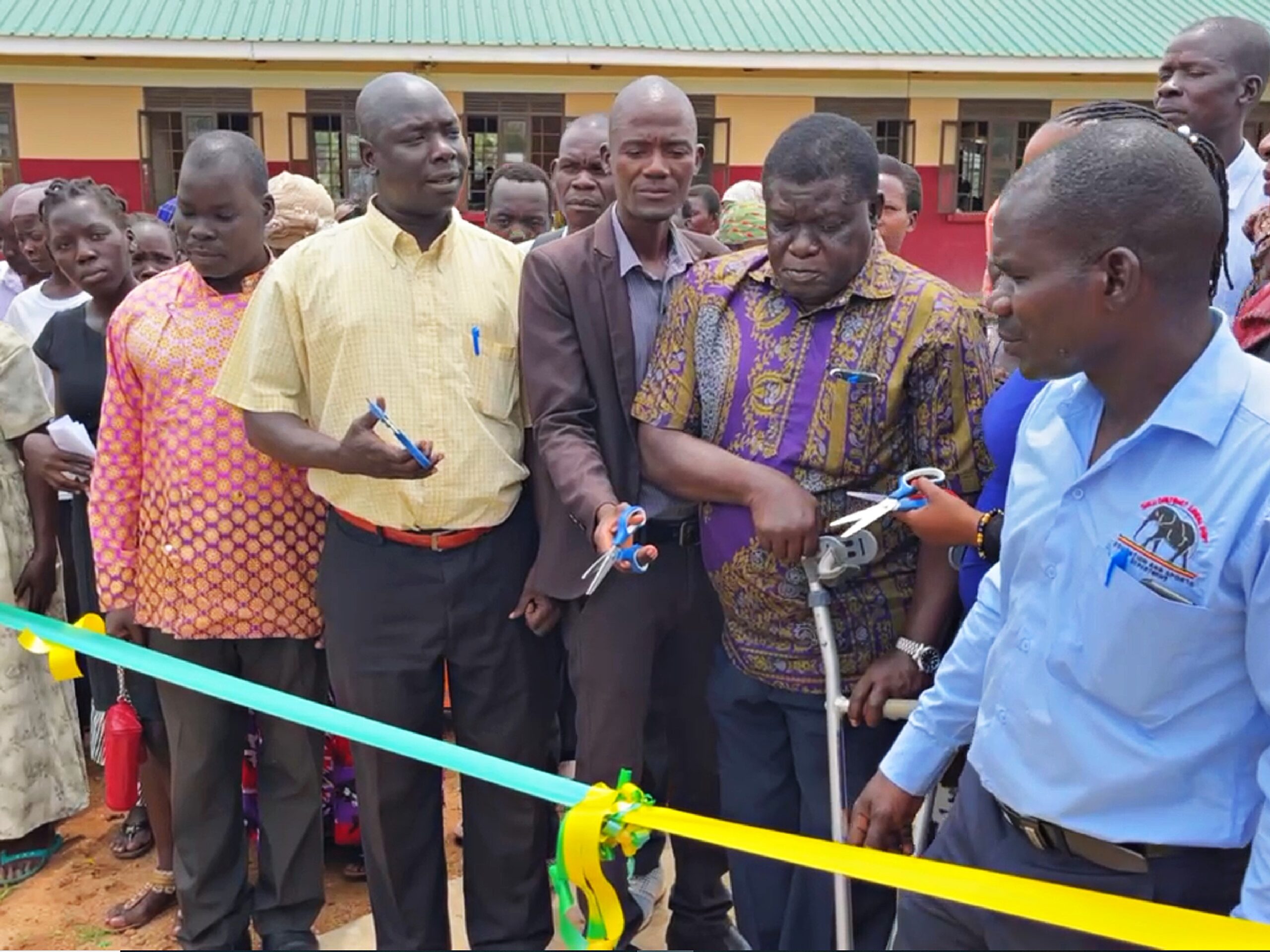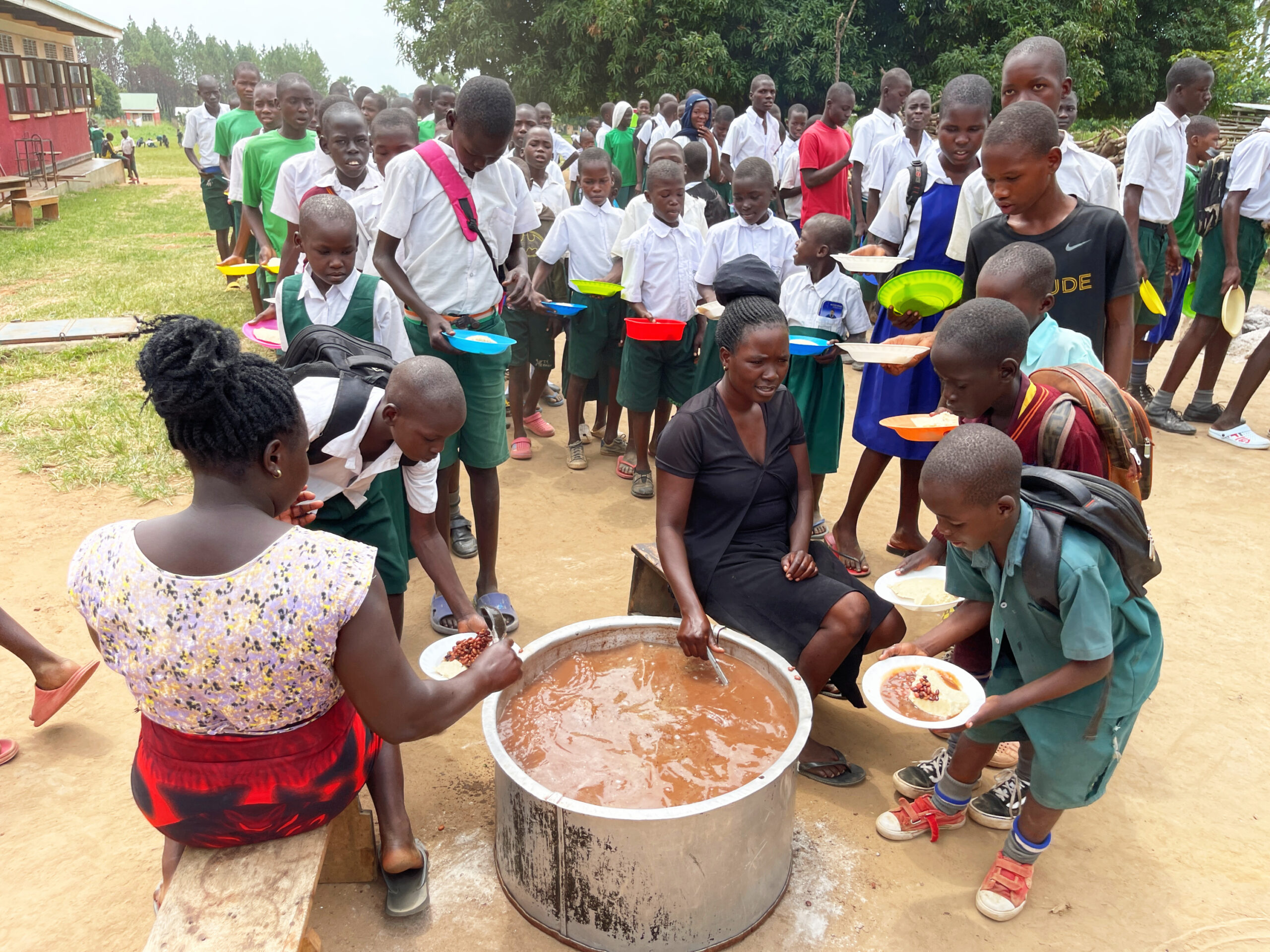Providing Water and Sanitation
Providing Water and Sanitation (WASH) for girl students in Northern Ugandan SchoolsThank you for all the support in achieving our goal. If you wish to donate, please proceed.
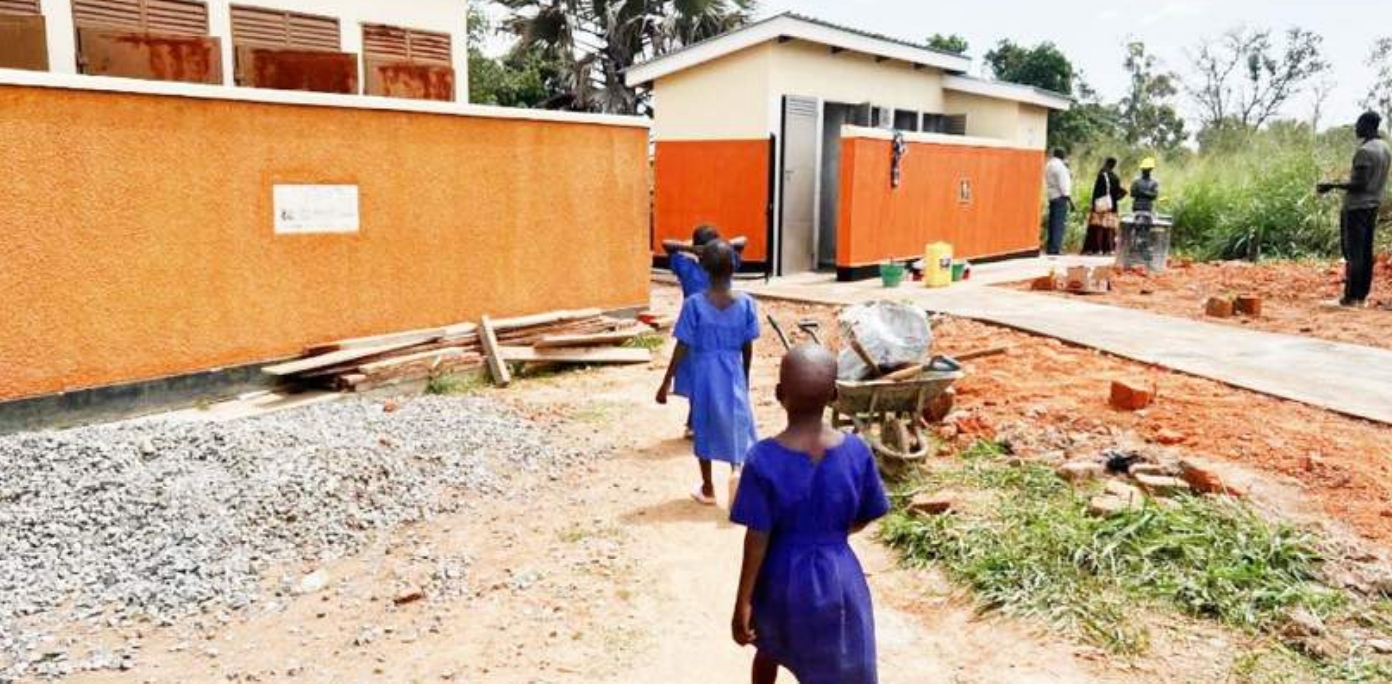
Expected Use of Funds
-
Construction
6000
-
Supplies (Soap)
2000
-
Key Stats
-
State/Province
Gulu District
-
Country
Uganda
-
Number of Students Helped
8,550
-
Type of Students Served
Primary
-
Project Purpose
Improve the quality of education for girl students in Northern Uganda
-
Partner
Advocacy Project
Profile
This project aims to boost enrollment and improve the quality of education for girl students in 15 primary schools in Gulu district, Northern Uganda. by improving Water, Sanitation and Hygiene (WASH) facilities. This will be done in two ways. First, the project will install new toilets and handwashing (WASH) for girls at two schools. Second, the project will ensure that WASH facilities are kept clean and maintained at 13 other schools. PROBLEM: The project is prompted by a WASH crisis in the schools of Gulu, where education has still not recovered from the rebellion by the Lord’s Resistance Army (LRA) and the COVID-19 pandemic. Of the 47 primary schools in Gulu district, two thirds do not meet the government specifications, which require a minimum of one toilet per 40 students. This is particularly serious for students with a disability, who face obvious physical challenges in using toilets. It also creates problems for girl students, who need privacy and a place to change particularly during menstruation.
This deep-rooted and persistent crisis has been the object of a ten-year program by the Gulu Disabled Persons Union (GDPU) and The Advocacy Project (AP). GDPU has installed a WASH package at six primary schools in Gulu District since 2015 and in the process developed a model that engages the community and is also economical. Before it agrees to work in a school, GDPU requires a written agreement from parents that they will dig the latrine pit for the new toilets, thus ensuring that the new facilities will be ownded by the community. GDPU also asks for three bids from contractors, ensuring a competitive process. GDPU also makes its own soap, which carries the brand name of Clean Wash, which is sold at a subsidised rate to participating schools. Finally, GDPU and AP monitor as many schools as possible in the district and advise them regularly on how to keep WASH facilities clean.
2024 ACTIVITIES: As a result of this outstanding record, the Gulu District Education Office has asked GDPU to install WASH at two more schools in 2024 and monitor as many other schools as possible to ensure that toilets are kept clean. Based on this, GDPU and AP have developed the following work plan: ACTIVITY 1. Install a new WASH package (accessible toilets, handwashing, changing rooms and an incinerator) in the Kiteny Owal and Kukodi schools. 2. Monitor WASH facilities in all 15 schools and help the schools develop a disciplined schedule for cleaning the toilets and ensuring the provision of soap, water and brushes. 3. Provide students and staff with training on hygiene, inclusivity and malaria prevention. 4. Increase the production of Clean Wash soap and supply all 15 schools as needed. 5. Establish a methodology to measure progress towards the key outcomes of hygiene and enrollment. 6. Build an international network of supporters for the program and establish new partnerships between Uganda and the US. 7. Work with donors who share our joint commitment to education, girls’ empowerment and social justice. 8. Deploy a graduate student from the US to volunteer at GDPU in the summer of 2024 and provide technical support for the WASH project.
History
This project was launched in 2011 when GDPU and AP exposed the challenge that faced people with a disability who did not have access to toilets in Gulu district. We began by building a new accessible toilet at the Gulu bus park, but it was soon vandalized because it lacked stakeholders. Responding to an appeal from the Gulu district education officer, we visited the Tochi School in 2014 and were dismayed to find overflowing toilets, a lack of handwashing and widespread bullying against students with a disability. We put up an appeal on GoFundMe and raised enough money to install a single toilet for students with a disability only. After visiting more schools we found that entire school populations were suffering from the lack of WASH facilities and in 2017 we received funding from Givology to install toilets for all students at the Ogul School. We also appealed to Ogul parents for help and over 50 parents spent the week digging the pit for a new latrine. The new latrine were completed within two months and handed over by GDPU and the contractor to the school and community at an enthusiastic celebration that attracted hundreds of students, teachers, parents and local dignitaries. Since Ogul, GDPU has installed a WASH package at four more schools – Awach Central, Awach Primary, Abaka and Panykworo.
With each school, new lessons are learned. As the special needs of girl students have became clearer we now prioritize schools that need toilets for girls. In 2022 we started including changing rooms for girls. The model expanded again in 2023 when GDPU added new training to help girls understand hygiene. In 2023 we also expanded to include monitoring across the whole district after visiting 15 primary schools. We found that many toilets were in appallingly bad condition but did not need to be replaced. Instead, the problem was lack of regular maintenance. Several principals also appealed for an incinerator to dispose of used sanitary pads (which were being thrown into the latrine pit). As a result, the 2024 project will build new WASH facilities at two schools and conduct regular monitoring in 13 other schools which do not need new structures. This will require extensive outreach to students, staff and parents. This ability to learn and adapt is a critical feature of the GDPU model.
Impact
We anticipate that the 15 beneficiary school populations (8,550 students in total) will become more aware of the importance of WASH and that this in turn will lead to increased enrolment and improved hygiene, particularly among girls. This will happen through the following: a) Installment of accessible toilets for girls, handwashing, changing rooms and an incinerator in the Kiteny Owal and Kukodi schools. b) Regular monitoring of WASH facilities in all 15 schools, resulting in a disciplined schedule for cleaning the toilets and ensuring the provision of soap, water and brushes. c) Greater awareness of personal hygiene and community health among girl students, basic education in malaria prevention, and an end to bullying against students with a disability. d) The production of 4,000 liters (200 jerry cans) of Clean Wash soap, which will be distributed to all 15 schools. e) Hygiene and enrollment will be closely monitored at all 15 schools and recommendations made to the District Education Officer and head teachers.
See the difference in the videos below for the pre-WASH toilets versus the completion of modern toilets, which we aim to install into 15 more schools.
Team Credentials
The Advocacy Project (AP) has over 15 years of experience in helping community-based advocates deign and launch innovative campaigns and projects. AP has worked alongside 110 organizations in over 50 countries, and managed large projects for foundations (Open Society, MacArthur, Humanity United), for governments (the US, Germany and Netherlands), and leading aid agencies (Zivik in Berlin and the US Department of State). AP will support and guide this project from Washington, while GDPU’s experienced field staff will install the toilet and monitor progress.
The Gulu Disabled Persons’ Union (GDPU) was founded during the 1980 famine by a group of disabled people to improve their access to relief supplies. Today, GDPU is recognized as a strong advocacy network which fights for the rights of people with disabilities across Northern Uganda. The WASH project is led by Patrick Ojok, GDPU program manager since 2011. Patrick has coordinated all six WASH school projects and is well known as an expert on WASH, disability and education. His deputy Emma Ajok has managed the day-to-day activities of the last three school projects and developed close ties to teachers and parents across the district. Emma is widely praised for her leadership skills and ability to connect with girl students. The third indispensable member of the GDPU team, MaryPaul Lakot, manages money, keeps receipts, maintains records online and reports to donors. Walter Otika, the GDPU driver, has been driving the roads of Gulu for 40 years and is the fourth member of this experienced and effective GDPU team. The second partner in this project, The Advocacy Project (AP) is a nonprofit based in Washington DC that helps marginalized communities in the Global South to tell their stories, strengthen their organizations and produce social change. Since 2001 AP has worked with 141 CBOs in more than 40 countries, including GDPU, and helped to raise over $4 million for partner programs. AP also deploys graduate students from the Global North to volunteer as Peace Fellows with partners. Sixteen Fellows have served as GDPU since 2008.
Donors
Joyce M
Donations
Latest
Support Givology
Since we are 100% volunteer-run and we do not take anything from donations, we depend on supporters like you to help our organization grow.
Individual student scholarships change lives. Our students share a common dream of finishing school and aspiring for a better life.
We curate high-impact grassroots education projects. Our partners define their most urgent priorities for funding.
Search
Avani Fachon
Chief Information Officer & Social Media Director
Joyce Meng is a co-founder and CEO of Givology. She’s very passionate about education, traveling, impact evaluation, and data analysis in philanthropy. She is a Rhodes Scholar, receiving a MSc in Development Economics and a MSc in Financial Economics from Oxford University. Every day, she’s completely inspired by her Givology team and their creative ideas to raise awareness and get people engaged with making a difference! Her personal website is www.joycemeng.com. In her spare time, she plays ice hockey and takes long walks in New York City.
David Cohen
Tech Lead
Joyce Meng is a co-founder and CEO of Givology. She’s very passionate about education, traveling, impact evaluation, and data analysis in philanthropy. She is a Rhodes Scholar, receiving a MSc in Development Economics and a MSc in Financial Economics from Oxford University. Every day, she’s completely inspired by her Givology team and their creative ideas to raise awareness and get people engaged with making a difference! Her personal website is www.joycemeng.com. In her spare time, she plays ice hockey and takes long walks in New York City.
Philip Gavlan
Chief Information Officer & Social Media Director
Joyce Meng is a co-founder and CEO of Givology. She’s very passionate about education, traveling, impact evaluation, and data analysis in philanthropy. She is a Rhodes Scholar, receiving a MSc in Development Economics and a MSc in Financial Economics from Oxford University. Every day, she’s completely inspired by her Givology team and their creative ideas to raise awareness and get people engaged with making a difference! Her personal website is www.joycemeng.com. In her spare time, she plays ice hockey and takes long walks in New York City.
Jennifer Chen
Co-Founder and President
Joyce Meng is a co-founder and CEO of Givology. She’s very passionate about education, traveling, impact evaluation, and data analysis in philanthropy. She is a Rhodes Scholar, receiving a MSc in Development Economics and a MSc in Financial Economics from Oxford University. Every day, she’s completely inspired by her Givology team and their creative ideas to raise awareness and get people engaged with making a difference! Her personal website is www.joycemeng.com. In her spare time, she plays ice hockey and takes long walks in New York City.
Joyce Meng
Co-Founder and Chief Executive Officer
Joyce Meng is a co-founder and CEO of Givology. She’s very passionate about education, traveling, impact evaluation, and data analysis in philanthropy. She is a Rhodes Scholar, receiving a MSc in Development Economics and a MSc in Financial Economics from Oxford University. Every day, she’s completely inspired by her Givology team and their creative ideas to raise awareness and get people engaged with making a difference! Her personal website is www.joycemeng.com. In her spare time, she plays ice hockey and takes long walks in New York City.
